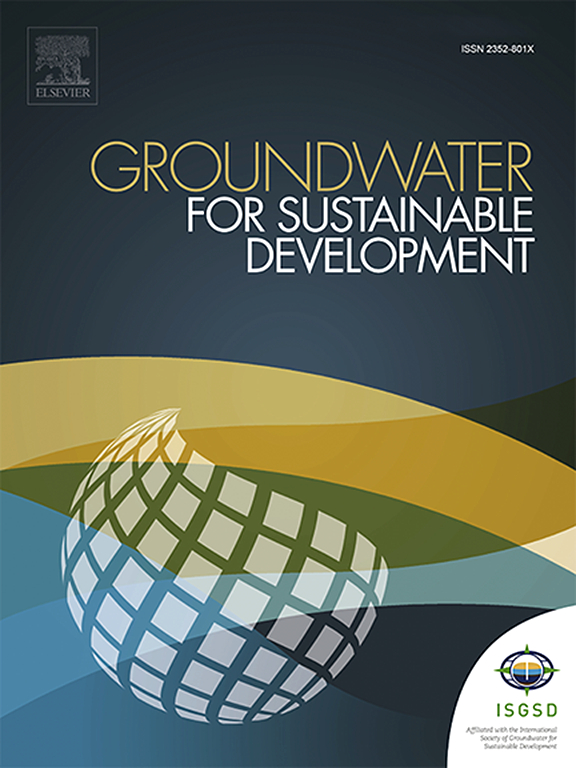地下水补给过程驱动的中国白酒空间分布:来自水化学分析的见解
IF 4.9
Q2 ENGINEERING, ENVIRONMENTAL
引用次数: 0
摘要
赤水河沿岸的白酒公司对当地经济做出了重大贡献。该地区位于中国白酒产值最高的地区,被称为白酒金三角。本研究对赤水河流域和中国其他著名白酒产区的地下水和地表水进行了地球化学分析。结果表明,水岩反应特性对白酒风味的芳香特征影响较大,其中硫酸盐(S)和锶(Sr)是关键化学元素。由于地下水流经不同的地质层,如碳酸盐层、石膏层和天青石层,它会显著影响高品质白酒的风味特征。本文章由计算机程序翻译,如有差异,请以英文原文为准。

Spatial distribution of Chinese baijiu driven by groundwater recharge processes: Insights from hydrochemical analysis
Baijiu companies located along the Chishui River contribute significantly to the local economy. This area lies within China's highest output value of baijiu region, known as the Baijiu Golden Triangle. This study performed geochemical analyses on groundwater and surface water from the Chishui River Basin and other well-known baijiu-producing areas in China. Findings show that water-rock reaction characteristics in brewing water greatly influence the aromatic profiles of various baijiu flavors, with key chemical elements of sulfate (S) and strontium (Sr). Isotope analyses of δ18O and δ2H isotope identified the source of the brewing water as recharge from leakage water in the Tibetan Plateau. As groundwater passes through distinct geological layers—such as carbonate, gypsum, and celestite formations—it significantly affects the flavor characteristics of high-quality baijiu.
求助全文
通过发布文献求助,成功后即可免费获取论文全文。
去求助
来源期刊

Groundwater for Sustainable Development
Social Sciences-Geography, Planning and Development
CiteScore
11.50
自引率
10.20%
发文量
152
期刊介绍:
Groundwater for Sustainable Development is directed to different stakeholders and professionals, including government and non-governmental organizations, international funding agencies, universities, public water institutions, public health and other public/private sector professionals, and other relevant institutions. It is aimed at professionals, academics and students in the fields of disciplines such as: groundwater and its connection to surface hydrology and environment, soil sciences, engineering, ecology, microbiology, atmospheric sciences, analytical chemistry, hydro-engineering, water technology, environmental ethics, economics, public health, policy, as well as social sciences, legal disciplines, or any other area connected with water issues. The objectives of this journal are to facilitate: • The improvement of effective and sustainable management of water resources across the globe. • The improvement of human access to groundwater resources in adequate quantity and good quality. • The meeting of the increasing demand for drinking and irrigation water needed for food security to contribute to a social and economically sound human development. • The creation of a global inter- and multidisciplinary platform and forum to improve our understanding of groundwater resources and to advocate their effective and sustainable management and protection against contamination. • Interdisciplinary information exchange and to stimulate scientific research in the fields of groundwater related sciences and social and health sciences required to achieve the United Nations Millennium Development Goals for sustainable development.
 求助内容:
求助内容: 应助结果提醒方式:
应助结果提醒方式:


